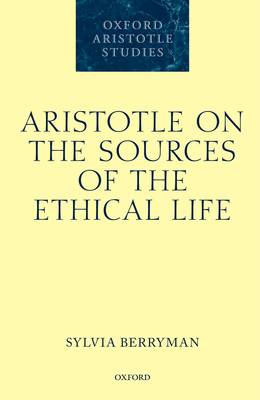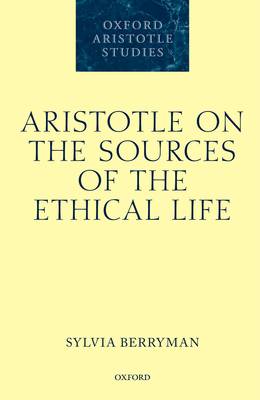
Door een staking bij bpost kan je online bestelling op dit moment iets langer onderweg zijn dan voorzien. Dringend iets nodig? Onze winkels ontvangen jou met open armen!
- Afhalen na 1 uur in een winkel met voorraad
- Gratis thuislevering in België vanaf € 30
- Ruim aanbod met 7 miljoen producten
Door een staking bij bpost kan je online bestelling op dit moment iets langer onderweg zijn dan voorzien. Dringend iets nodig? Onze winkels ontvangen jou met open armen!
- Afhalen na 1 uur in een winkel met voorraad
- Gratis thuislevering in België vanaf € 30
- Ruim aanbod met 7 miljoen producten
Zoeken
Omschrijving
Aristotle on the Sources of the Ethical Life challenges the common belief that Aristotle's ethics is founded on an appeal to human nature, an appeal that is thought to be intended to provide both substantive ethical advice and justification for the demands of ethics. Sylvia Berryman argues that this is not Aristotle's intent, while resisting the view that Aristotle was blind to questions of the source or justification of his ethical views. She interprets Aristotle's views as a 'middle way' between the metaphysical grounding offered by Platonists, and the scepticism or subjectivist alternatives articulated by others. The commitments implicit in the nature of action figure prominently in this account: Aristotle reinterprets Socrates' famous paradox that no-one does evil willingly, taking it to mean that a commitment to pursuing the good is implicit in the very nature of action.
Specificaties
Betrokkenen
- Auteur(s):
- Uitgeverij:
Inhoud
- Aantal bladzijden:
- 230
- Taal:
- Engels
- Reeks:
Eigenschappen
- Productcode (EAN):
- 9780198835004
- Verschijningsdatum:
- 14/05/2019
- Uitvoering:
- Hardcover
- Formaat:
- Genaaid
- Afmetingen:
- 155 mm x 236 mm
- Gewicht:
- 476 g

Alleen bij Standaard Boekhandel
+ 309 punten op je klantenkaart van Standaard Boekhandel
Beoordelingen
We publiceren alleen reviews die voldoen aan de voorwaarden voor reviews. Bekijk onze voorwaarden voor reviews.











